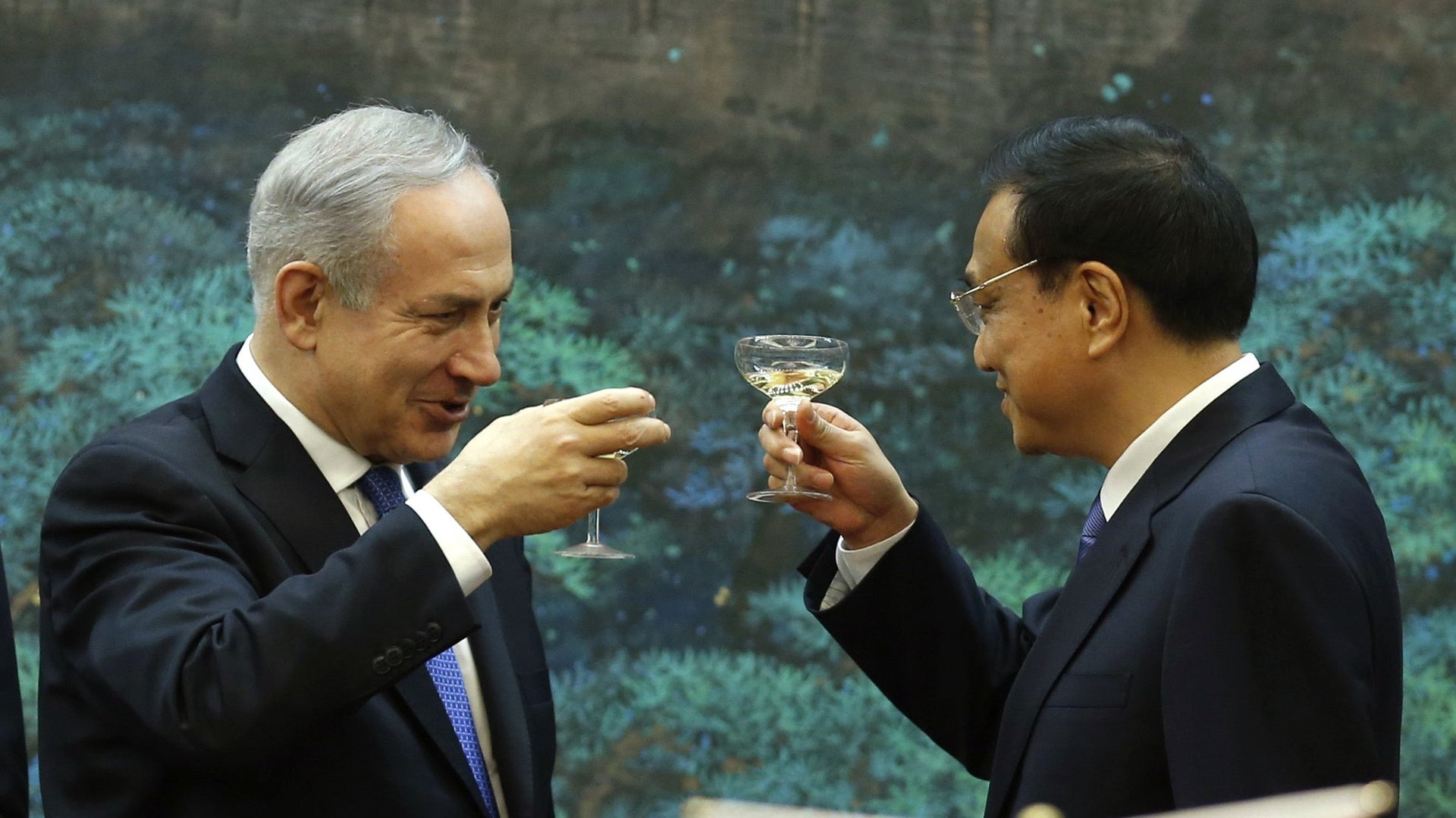Did Israel drop a terrorism-related money-laundering suit to get closer to China?
Israeli Prime Minister Benjamin Netanyahu is in the hotseat amid reports that he agreed to help quash a terrorist money-laundering lawsuit against the Bank of China in order to secure a key diplomatic visit to Beijing.

Israeli Prime Minister Benjamin Netanyahu is in the hotseat amid reports that he agreed to help quash a terrorist money-laundering lawsuit against the Bank of China in order to secure a key diplomatic visit to Beijing.
Israel’s Yedioth Ahronoth and the Financial Times reported that China threatened to cancel Netanyahu’s trip in May. At issue was a long-running US lawsuit by the families of Israelis killed in attacks by the Palestinian groups Hamas and Islamic Jihad. Israel had previously encouraged the lawsuit, which claimed the Bank of China helped facilitate wire transfers that funded the groups, and offered up one of its former intelligence agents as a witness. But ahead of Netanyahu’s visit, it decided not to allow the agent to be deposed. The head of an Israeli group involved in the case said the Bank of China “told the court that it understood that the witness would not testify.”
China and Israel have strengthened their relationship this year: China wants to play a bigger role in the Middle East, where it is heavily dependent on oil from Arab states and Iran; Israel wants to boost trade with China, its second-biggest market after the United States, and an eager buyer of Israeli technology.
As for the government-backed Bank of China, it claims to have “always strictly followed the UN’s anti-money laundering and anti-terrorist financing requirements and regulations in China and other judicial areas where we operate.” The United States and other Western nations have been cracking down heavily on money-laundering activity, especially when it’s tied to terrorism or heavily sanctioned countries. Earlier this year, Standard Chartered agreed to pay $340 million in fines to settle accusations that it hid hundreds of billions of dollars in transactions with Iran. And the Bank of China recently closed a crucial bank account that the US labeled a “key financial node” in North Korea’s nuclear missile program.
Now the latest revelation has the makings of an uncomfortable political scandal for Netanyahu, long know for his hardline stance on terrorism. It could particularly affect Israel’s image in the US Congress, because House majority leader Eric Cantor is the cousin of one of the lawsuit’s plaintiffs.
Netanyahu has not addressed the situation publicly, but reportedly called his ambassador to the US back to Israel this past weekend to discuss the matter. If the media accounts are accurate, his government seems to have calculated that cracking down on terrorist funding was less important than bolstering economic and diplomatic ties with China.